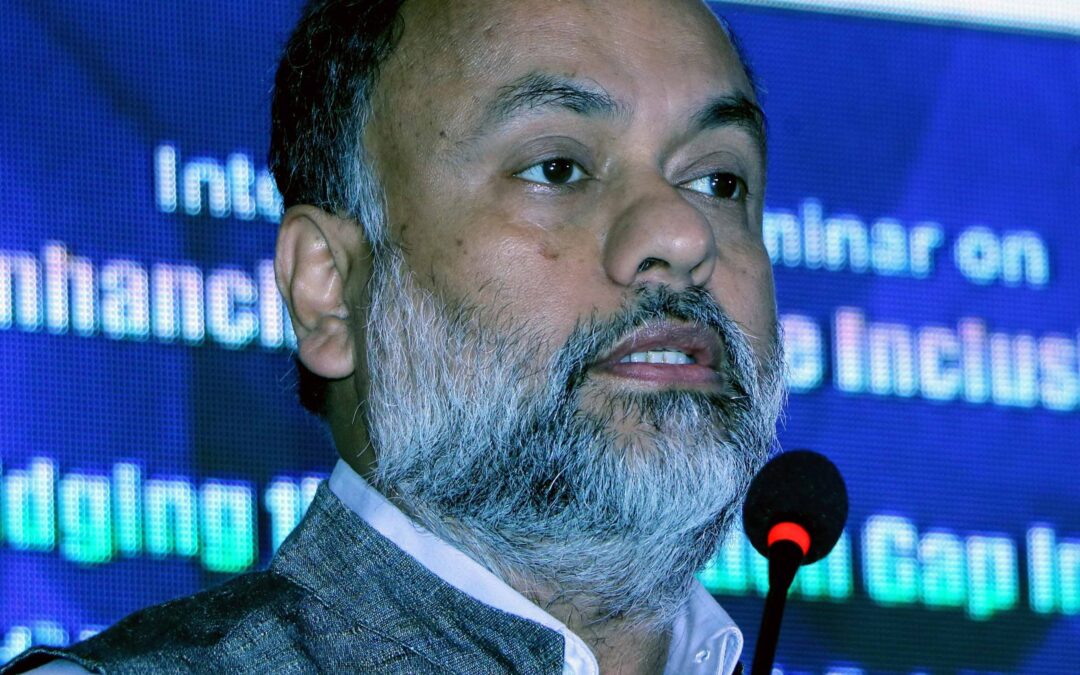Debasish Panda, Chairman,Irdai, is addressing an international seminar on “Enhancing Insurance Inclusivity & Bridging the Protection Gap in India’ organised by National Insurance Academy in Mumbai
Releasing the report, Irdai Chairman Debasish Panda said spreading of natural calamity insurance in high-risk regions is needed if the country wants to achieve insurance for all by the time the nation completes a hundred years as a republic
Mumbai:
As much as 95 per cent of the country’s population is uninsured for natural catastrophe despite the government and the insurance regulator’s efforts to expand coverage, Pune based National Insurance Academy said in a report, which was released on Thursday.
Unveiling the report, Irdai Chairman Debasish Panda said spreading of natural calamity insurance in high-risk regions is needed if the country wants to achieve insurance for all by the time the nation completes a hundred years as a republic.
Highlighting that 95 per cent of the country’s population of 144 crore is uncovered for the natural catastrophe, the report has recommended a compulsory natural calamity insurance in high-risk regions.
The high prevalence of lack of insurance coverage assumes importance in the light of the increase in the number of natural calamities and other climate-related disasters to hit the country.
Panda urged the industry to emulate steps that led to the massive success of the UPI, opening of bank accounts, as well as mobile penetration.
Further, the report said 84 per cent people from low- and middle-income categories, and 77 per cent from coastal regions, tier-2, and tier-3 cities, lack property insurance.
The report also called for compulsory crop insurance for farmers who have taken bank loans, supported by premium financing from microfinance institutions and agri-input suppliers.
Giving category-specific insurance gap, the report said currently, annuity and pension protection gap is at a high of 93 per cent.
There is an 87 per cent protection gap on life insurance, which presents a huge business opportunity, the report said.
On health insurance, the report said 73 per cent of the population is uncovered, and called for collaboration between government, NGOs, and industry groups to create micro health insurance with simplified products.
Pension and annuity coverage also lags with just 24 per cent enrolled in employee retirement schemes. Notably, low-income individuals and lower-middle-income segments exhibit a meagre 14 per cent and 25 per cent penetration, respectively, as per the report.
Cyber protection gap is rapidly expanding across sectors due to increased exposure, higher digital usage, and growing connectivity and 62 per cent of customers looking to protect their cyber risk, it said.


Crop insurance must be compulsory for all farmers and not only for the farmers who have taken bank loans. Otherwise it will mean that crop insurance is to protect only bank loans and not to protect farmers.